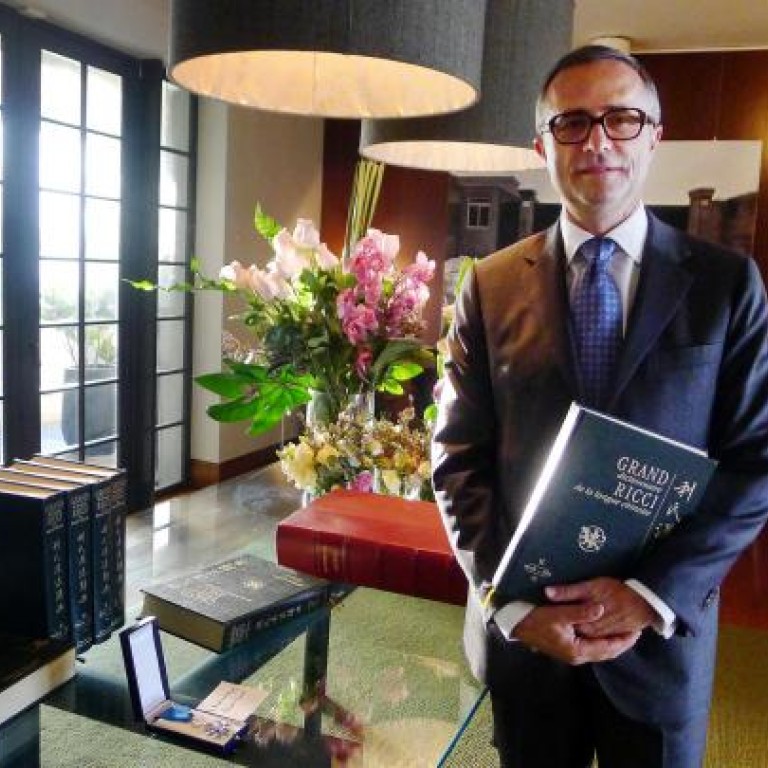
Claude Haberer honoured for work on dictionary
Claude Haberer of Swiss bank Pictet honoured for his tireless work on producing a dictionary
Bankers tend to be obsessed with numbers rather than words. However, one French financier has gone against the trend.
Claude Haberer, head of Asia wealth management of Swiss private bank Pictet, last week was bestowed with the French government's Chevalier in the Ordre National du Merite for his work on a French-Chinese dictionary. Besides his busy day job, Haberer is chairman of the Association Ricci, which publishes the , a 10,000-page Chinese-French dictionary and Chinese lexicon in seven volumes. He was initially attracted by the association's conferences on Chinese philosophy, but later helped the dictionary project raise funds.
The banker, who speaks fluent Putonghua and writes Chinese, helped raise an estimated US$15 million for the initial printing of the dictionary and still needs funding for future projects.
The dictionary was named after Matteo Ricci, the founding Jesuit missionary in China who arrived in Macau in 1583 and studied the Chinese language.
In the 1800s, the Jesuits set up a centre in Shanghai to study the language, history and culture of China. They produced about 200 books of definitions, proverbs and linguistic analysis.
When the Communist Party took control in 1949, a Hungarian priest, Eugene Zsamar, was determined to continue that mission.
Arriving in Macau, he began a project in 1952 to create Chinese dictionaries in five different languages - French, Latin, English, Hungarian and Spanish.
The operation moved to Taiwan later that year, and has been based there since. The projects involved a lengthy translation and editing process. Eventually, only a French team was left to complete the work.
Haberer said "it is crazy to start such a project but it is mad not to finish it". So, as a banker, he used his skills and business relationships to raise funds to finally print the 10,000 page French-Chinese dictionary in December 2001. About 3,000 copies are held in public libraries in cities around the world. including Hong Kong.
The dictionary contains more than 300,000 entries, being not only translations of Chinese words into French, but also detailed explanations of the usage and history of the words which in many cases date back 3,000 years.
When Association Ricci's former chairman Father Claude Larre died the same week as the dictionary was being printed, Haberer became chairman.
He introduced a DVD version of the dictionary in 2010. It also has a dictionary of 20,000 Chinese plant names translated into French. Versions for the iPhone and iPad will be launched by the end of this year.
Future projects include Chinese-French dictionaries of Chinese traditional medicine, Chinese legal terms and Chinese wines and viticulture.
Haberer is still twisting the arms of wealthy patrons to finance the dictionary projects and needs between HK$300,000 and HK$500,000 per project.

